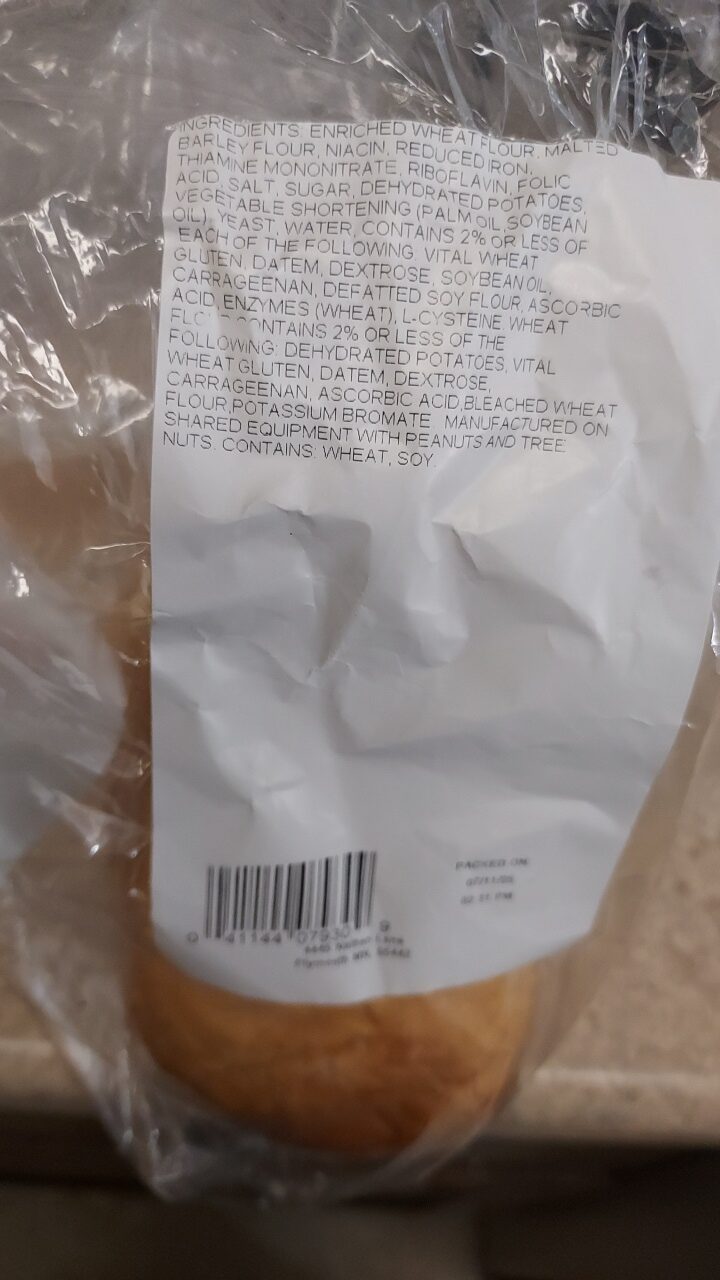
Barcode: 041144065845
None
HALAL
📝 Reason: All ingredients are plant, mineral, or microbial except ‘enzymes (wheat)’ and ‘l-cysteine’. Both could possibly be derived from animal/non-Halal sources. Islamic scholars advise caution (Quran 5:3 on forbidden items; IFANCA on ingredient sourcing). As neither ingredient has specified Halal origins or certification as required by strict Halal standards, status is Doubtful.
📄 Certificates: Contains: Wheat, Soy., Vegetarisch
Ingredients:
Details
Understanding the Halal Status of None
The Halal status of food products is a significant concern for many, particularly in communities that adhere strictly to Islamic dietary laws. In this article, we delve into the specifics of a product named ‘None’ and its ingredients to ascertain its Halal status. According to the disclosure, the product’s ingredients imply a complex situation surrounding Halal certification.
Overview of Ingredients
- Enriched Wheat Flour: Primarily consists of wheat with vitamins and minerals added. Since all components are of plant or mineral origin, its Halal status is confirmed. Source
- Malted Barley Flour: Derived from barley through malting. The processing is considered Halal as there are no Haram elements involved. Source
- Niacin: Usually derived from plant sources or synthetically made, therefore it’s Halal. Source
- Reduced Iron: This mineral is Halal and is commonly used for fortification purposes. Source
- Thiamine Mononitrate (Vitamin B1): Generally sourced from plants, making it Halal. Source
- Riboflavin (Vitamin B2): Typically synthetically produced or derived from plants; hence Halal compliant. Source
- Folic Acid: A synthetic vitamin that is Halal. Source
- Salt: A mineral and Halal by its very nature. Source
- Sugar: Derived from plants, thus Halal. Source
- Dehydrated Potatoes: Plant origin and Halal. Source
- Vegetable Shortening (Palm and Soybean Oil): Halal unless contaminated with Haram fats. Source
- Yeast: Considered Halal as it is of microbial origin. Source
- Water: Unquestionably Halal. Source
- Vital Wheat Gluten: A protein derived from wheat, which is Halal. Source
- DATEM: An emulsifier typically sourced from plant derivatives; nevertheless, it can theoretically originate from animal sources, but commercial products usually assure plant-derived origins Source.
- Dextrose: Sourced from corn or wheat, confirming plant origin and Halal compliance. Source
- Soybean Oil: A Halal plant oil. Source
- Carrageenan: Extracted from seaweed and recognized as Halal. Source
- Defatted Soy Flour: Plant origin, Halal recognized. Source
- Ascorbic Acid: A Vitamin C source, either synthetic or plant-based, posing no Halal concerns. Source
- Enzymes (Wheat): Potential for being of animal origin, meaning Halal status is dubious without specified sourcing. Source
- L-Cysteine: Often derived from hair, whether human or animal. As the source isn’t specified, the Halal status is unclear. Source
- Bleached Wheat Flour: Typically Halal unless specified otherwise regarding mind-altering agents. Source
- Potassium Bromate: Halal food industry use, despite being banned in certain areas for health reasons rather than religious. Source
Conclusion
In conclusion, the overall assessment of the product ‘None’ is that it contains numerous ingredients that are verified Halal. However, caution should be taken particularly regarding ‘Enzymes (Wheat)’ and ‘L-Cysteine’ as there may be potential animal origins that are not explicitly stated. This leads to a conclusion that while most ingredients are Halal, the unsure origins of specific components advise against a definite Halal certification for ‘None’. Islamic scholars emphasize caution regarding such ingredients (Quran 5:3). Always check for more information or certification if you are in doubt.
